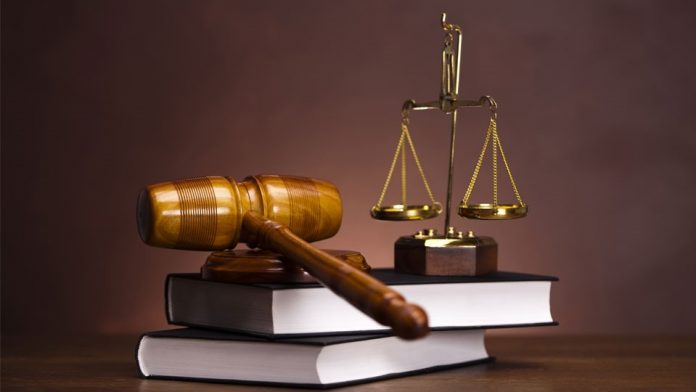
NABAM REBIA & BAMANG FELIX V. DEPUTY SPEAKER, ARUNACHAL LEGISLATIVE ASSEMBLY, 2016 SC 694
Question: Whether the Governor’s decision of imposing President’s rule in Arunachal Pradesh without aid and advice of council of ministers is justified.
Answer: No, the Governor’s decision of imposing President Rule was not justified.
Forum: Supreme Court
Bench: (J) J.S. Khehar, (J) Dipak Misra, (J) M B. Lokur, (J) P.C. Ghose and (J) N.V. Ramana
Facts of the Case-
The facts of the case of were that in 2011 Arunachal Pradesh Elections Nabam Tuki won the elections with a full majority of 47 seats out of a total of 60. But constitutional crisis occurred in the State of Arunachal Pradesh when 33 members of the Legislative Assembly, including 20 Congress members, 11 BJP members and 2 independent MLAs rebelled against Chief Minister Nabam Tuki. Speaker Nabam Rebia preemptively disqualified the rebel MLAs on the basis of anti-defection law before the assembly could meet.
The rebelled members met the Governor to express their dissatisfaction against the Speaker and the Government. The Governor without the aid and advice of Chief Minister or Council of ministers preponed the assembly meeting and also impeached the Speaker of the house and appointed a Congress rebel as a deputy speaker who then canceled the disqualification order of 14 rebel congressman.
As a result many petitions were filed in Gauhati High Court. The Gauhati High Court stayed the disqualification of Congress MLAs. As a result, the speaker appealed to the Supreme Court and the case was brought before a bench of five judges.
Issues of the Case-
- Whether the decision of the Governor to prepone the Assembly session was constitutional?
- Whether the Speaker’s act of disqualification of MLA’s when a motion for his impeachment was pending before the house was constitutional?
Contentions of the Petitioner-
Petitioners relied on the general scheme of responsible governance and contended that the governance must be carried out only by elected representatives who are accountable to the people, that is, the Council of Minister and not the governor who is a nominated official. The Constitution has carefully demarcated certain functions and powers that a governor may exercise at his own discretion, and thus the power to summon can’t be combined with a general discretionary power under Art.174 of the Constitution.
Contentions of the Respondent-
The respondent contended that the Governor, unlike the President is vested with the discretionary powers to summon and dissolve the Assembly independently. Respondent also took support from past occurrences where the decision of the Governor to independently summon and dissolve the house was held valid.
JUDGEMENT-
The five-judge constitution bench held that the Governor’s Act was violative of Art. 163 of the Constitution and quashed the Governor’s order which preponed the session of Assembly without consulting the council of ministers. Court also set aside the judgment of the Guwahati High Court and held that the notice issued by the Governor as unconstitutional, on account of being violative of Article 163 read with Article 174 of the Constitution of India..
The Apex Court referred to Art. 163 (Governor of a State shall act on the assistance and advice of the Council of Ministers unless the Constitution requires him to act at his discretion) and observed that the Governor does not have wide discretionary powers and is always restricted by the constitution framework.
The Court while answering the question whether the Governor should exercise the power of summoning “at his own will” or on the “aid and advice” of the Council of Ministers discussed Art.174 which confers the power of proroguing, summoning or dissolving the legislature on the Governor. The Court observed that the Governor’s discretion did not extend to the powers conferred on him under Art.174 of the constitution and, therefore, could not summon the House, to determine its legislative agenda or address the legislative assembly without consulting the Chief Minister or the President.
The five-judge bench came to the conclusion that-
(a) the discretionary power given to the governor is limited;
(b) to the scope postulated in Article 163(1);
(c) its ambit is not open to broader interpretation;
(d) there shouldn’t be any conflict of interest;
(e) its exercise shouldn’t be final and immune from judicial review.
The court therefore held that the directions issued by the governor in the manner of conducting the proceedings of the legislative Assembly are liable to be quashed for violating Art.163 and Art.174 of the Constitution. Thus Court while observing the role of the governor in the present case, observed that “the actions of the governor in the present case are against the spirit of parliamentary democracy and responsible government”.
Next the Court considered the question whether the speaker has the power to disqualify the rebel MLAs when a motion to remove him is pending.
The court while answering this question clarified the powers, role and duties of the Speaker and discussed Art.179(c) which enunciates that the Speaker may be impeached from office by a resolution of the Assembly which has to be passed by a majority of “all the then members of the Assembly”. Also a prior notice of 14 days is needed to be served before such a resolution is moved in the House, and the Speaker could only be removed by a resolution passed by a majority of all the then members of the assembly. Therefore, the Court came to the conclusion that Speaker’s decision of disqualifying the rebelled MLAs was an attempt to overcome voting by “all the then members” and thus held the speaker’s decision as unconstitutional.
Thus the Supreme Court restored the previous government and declared all the decisions of the Governor which had led to the imposition of Presidents Rule as unconstitutional. The Court also ordered for a floor test to check the majority of the Government and thus restored the sanctity of floor test.




